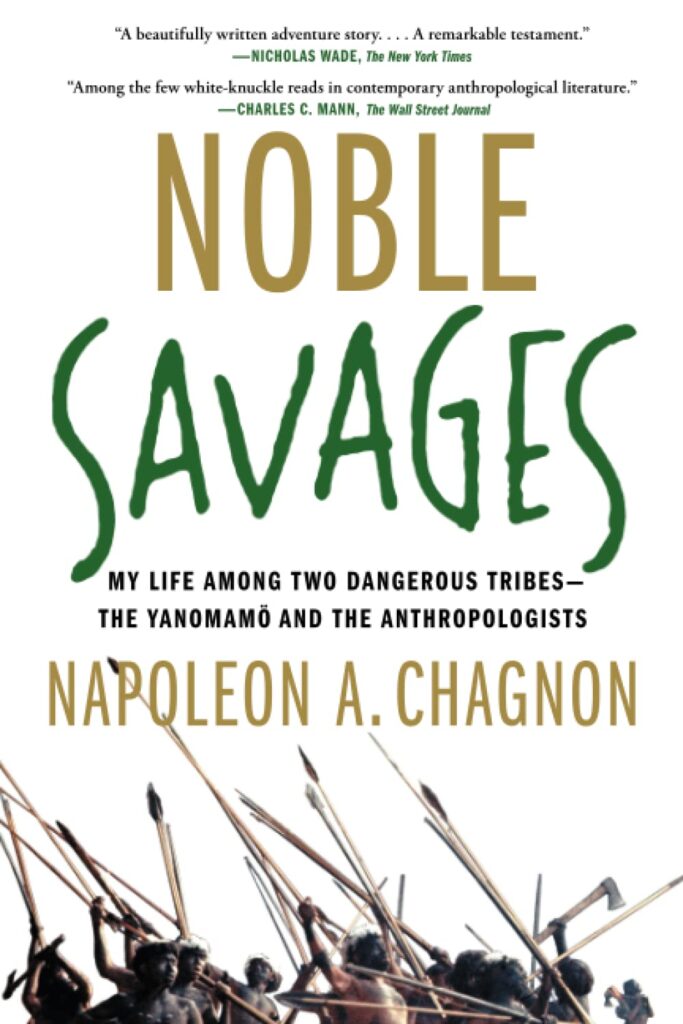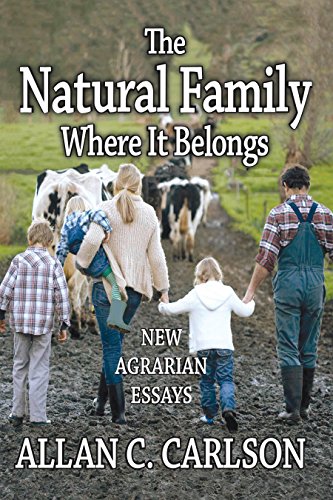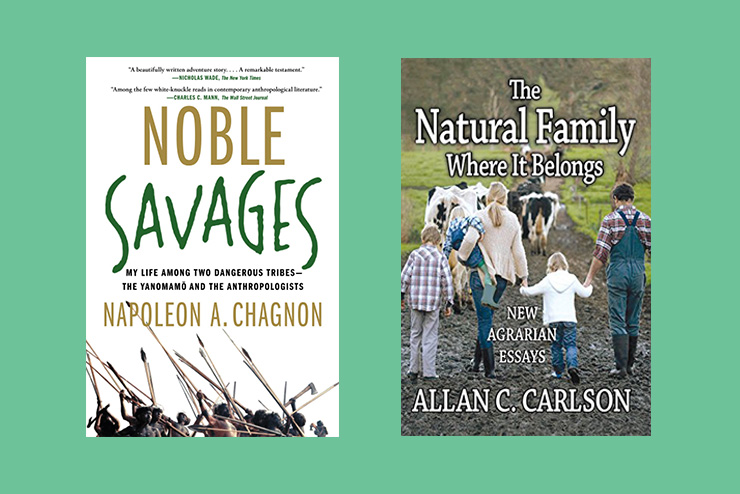
Anthropology, like much else in the academic social sciences, is in advanced decay. In Noble Savages, (2013)the late Napoleon Chagnon gives us a rare example of serious anthropological research, and details how corrupt actors within the discipline ceaselessly undermined and denounced his work.
Chagnon spent decades among the Yąnomamö people in the Amazonian jungle. At the time he began this work, they were one of the most pristine premodern peoples remaining in the Americas, nearly untouched by the modern world. His writings on their social organization achieved a level of fame scholars rarely dreamt of.
Chagnon quickly came to realize during his fieldwork that much of what he found was inconsistent with the dogma of the discipline in which he was trained. He had been taught that premodern societies were full of peaceful egalitarians; in reality, he discovered frequent warfare and rigorous hierarchies based on victories and failures in military combat. Yąnomamö violence was often driven by male competition for sexual access to females, and men with greater success in warfare had more wives and more children.
Chagnon reported what he found and expanded his theoretical framework into sociobiology and evolutionary theory to make sense of it. This is precisely how a scientist ought to comport himself. But it proved too much for his radical discipline. His fellow academics attacked him, often in scurrilously personal terms, throughout his career. In a scandalously mendacious 2000 book, a journalist accused this giant of anthropology of deliberately harming the Yąnomamö by, among other offenses, fostering a measles epidemic among them. The professional association that should have defended him instead joined in the denunciation and endeavored to destroy his intellectual reputation.
The evidence of the charge’s fraudulence proved too great even for such a concentrated ideological witch hunt. Chagnon was exonerated, though a third of the association’s members voted to support the patently false charges. He had to waste much time and energy in retirement defending himself against scurrilous charges that no honest scholars believed.
Those seeking insight into the cauldrons of boiling ideological groupthink that are the contemporary social sciences should explore this whole sordid story—objectively and compellingly presented in Noble Savages.
—Alexander Riley

The Natural Family Where It Belongs: New Agrarian Essays (2014) is an enlightening series of essays on the family and its place in modern society with a particular emphasis on the agrarian life as one of the best environments in which the family can flourish.
Allan Carlson’s first essay, “The Natural Family at Home,” effectively sets the tone. He promotes the idea of the family based on marriage as an independent, self-contained society. Marriage, he writes, “is the only true anarchist institution … it exists prior to other human bonds, be they village, city, state or nation.” Marriage creates its own welfare state, as “the family is far more effective at caring for the old, ill and infirm than the state.” The agrarian life is especially well-suited for family flourishing because it merges family, home, and work into one integral setting.
The Industrial Revolution broke the organic connection between family and work. But internet technology has made it possible once again for people to live where they work.
Carlson highlights how the overweening state has destroyed family life. The state exercises its power at the expense of other social units, including the family; it destroys the natural order by asserting its power to “protect” individuals from “the rooted authority of households and communities,” by building state schools to impose its morality, and by creating artificial rights that “bludgeon traditional authority.”
Swedish-style socialism has proven particularly hostile to the family. As early as the 1930s the Swedish socialists dropped their traditional nationalization platform and instead campaigned for state welfare, as well as policies forcing both parents to work outside the home, a model the West adopted more broadly. This, combined with feminist-inspired policies that punish stay-at-home mothers, has created what Carlson calls a “post-family order.” This new order has been further strengthened by the union of big government and big business, a toxic combination that Hilaire Belloc predicted would be more destructive than socialism per se. Under this alliance, workers “find security in ‘government regulation, confirming the economic dominance of larger corporations.’”
Carlson contributes essays on a variety of thinkers whose insights will be helpful in re-creating family-friendly communities today. These include the German economist Wilhelm Röpke, the poet Jay G. Sigmund, and conservative stalwart Russell Kirk, whom Carlson identifies as a “northern agrarian.” This book is a useful contribution to the debate on how we can restore a family-friendly society and return life to a more human scale.
—Piers Shepherd

Leave a Reply